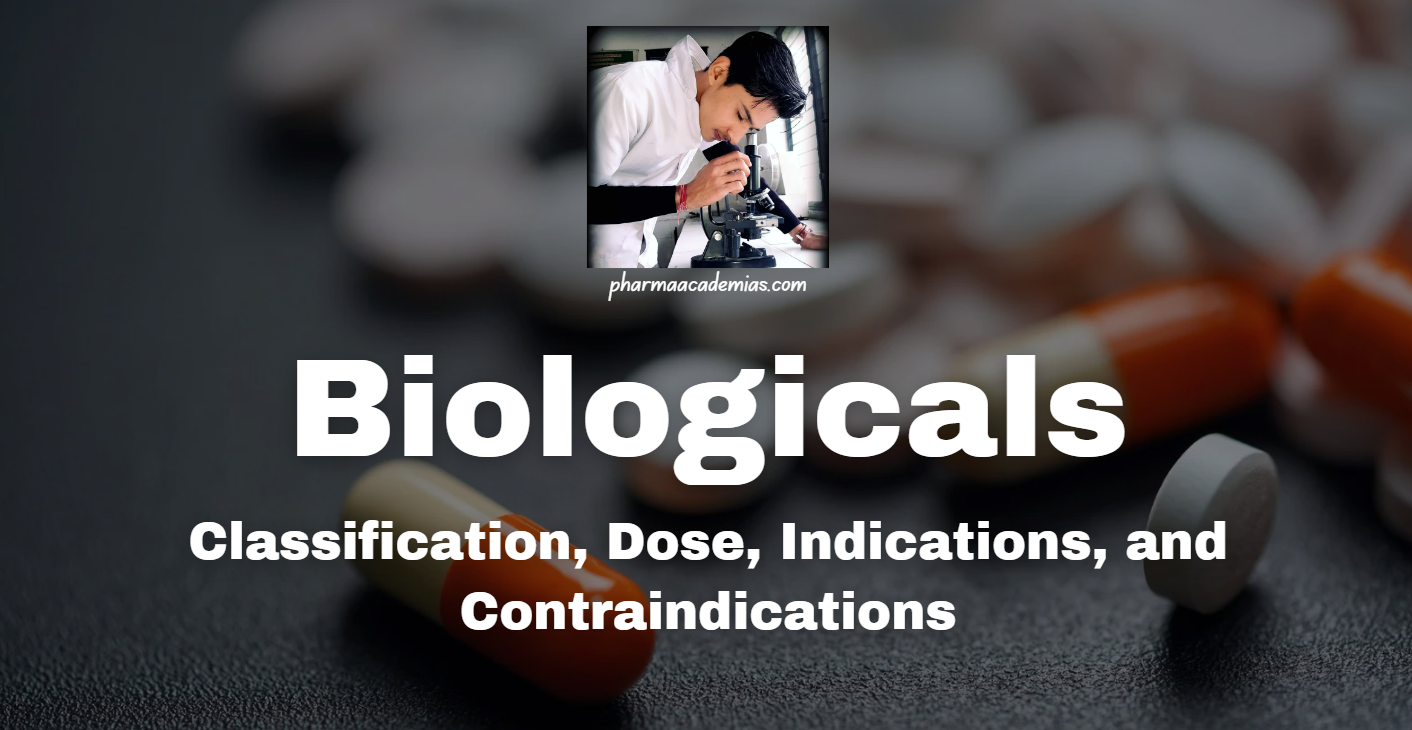Biologicals, often referred to as biologics, are pharmaceutical products derived from living organisms or containing components of living organisms. These products can include vaccines, blood or blood components, allergenics, somatic cells, gene therapies, tissues, and recombinant therapeutic proteins. Unlike traditional chemical drugs, which are synthesized through chemical processes, biological drugs are typically manufactured through biotechnological methods using living cells or organisms such as bacteria, yeast, or mammalian cells. Biologicals are used for various therapeutic purposes, including treating diseases such as cancer, autoimmune disorders, and genetic conditions.
Types of Biological Agents
Biological agents can be categorized into several types based on their composition, mechanism of action, and therapeutic use. Here are some common types:
1. Monoclonal Antibodies (mAbs)
These are antibodies produced in a laboratory setting that mimic the immune system’s ability to fight off harmful antigens. They are designed to target specific proteins or receptors involved in disease processes. Examples include:
Rituximab (Rituxan): Used in the treatment of certain types of cancer and autoimmune diseases.
Adalimumab (Humira): Used to treat autoimmune diseases such as rheumatoid arthritis and inflammatory bowel disease.
2. Recombinant Proteins
These are proteins produced by genetically engineered organisms, often bacteria or yeast. Recombinant proteins can include hormones, enzymes, growth factors, and cytokines. Examples include:
Insulin: Used to treat diabetes mellitus.
Erythropoietin (EPO): Used to stimulate red blood cell production in patients with anemia.
3. Vaccines
Biological agents that stimulate the immune system to produce an immune response against specific pathogens, preventing or mitigating infections. Examples include:
Inactivated vaccines (e.g., influenza vaccine)
Live attenuated vaccines (e.g., measles, mumps, and rubella vaccine)
4. Gene Therapy
This involves the introduction, removal, or modification of genetic material within a patient’s cells to treat or prevent disease. Examples include:
Luxturna: Used to treat inherited retinal dystrophy caused by mutations in the RPE65 gene.
Zolgensma: Used to treat spinal muscular atrophy (SMA) caused by mutations in the SMN1 gene.
5. Cell Therapies
These involve the administration of living cells to replace, repair, or enhance the function of damaged tissues or organs. Examples include:
Chimeric Antigen Receptor (CAR) T-cell therapy: Used to treat certain types of leukemia and lymphoma.
Mesenchymal stem cell therapy: Investigated for its potential in regenerative medicine for conditions such as osteoarthritis and cardiovascular disease.
Indications of Biological Agents
Biological agents are used to treat a wide range of diseases and medical conditions across various therapeutic areas. Some common indications include:
1. Autoimmune Diseases: Biologicals are frequently used to manage autoimmune diseases such as rheumatoid arthritis, psoriasis, and Crohn’s disease by targeting specific components of the immune system responsible for the disease pathology.
2. Cancer: Monoclonal antibodies and other targeted biological agents play a crucial role in cancer treatment by selectively targeting cancer cells or interfering with tumor growth and metastasis.
3. Infectious Diseases: Vaccines are one of the most effective biological agents for preventing infectious diseases caused by bacteria, viruses, and other pathogens.
4. Hematological Disorders: Recombinant proteins and cell therapies are utilized in the treatment of various hematological disorders, including anemia, hemophilia, and certain types of leukemia.
5. Genetic Disorders: Gene therapies offer promising treatment options for inherited genetic disorders by correcting or compensating for defective genes responsible for the disease phenotype.
6. Neurological Disorders: Emerging biological therapies, such as gene therapy and cell therapy, are being investigated for their potential in treating neurodegenerative disorders like Alzheimer’s disease and Parkinson’s disease.
In summary, biological agents represent a diverse class of pharmaceuticals with unique therapeutic mechanisms and applications across multiple medical specialties. From monoclonal antibodies to gene therapies, these innovative treatments continue to revolutionize the landscape of medicine, offering new hope for patients with a wide range of diseases and conditions.

